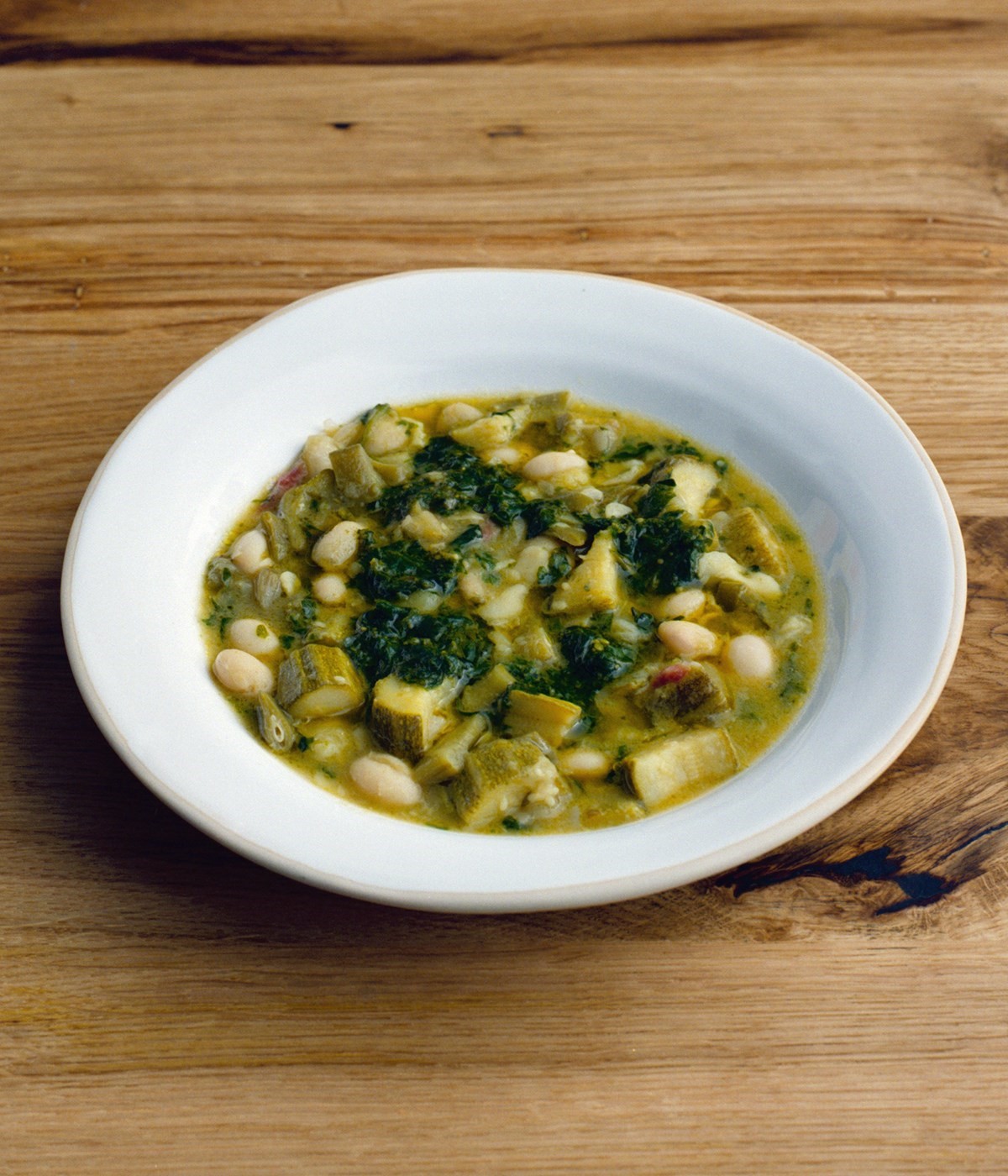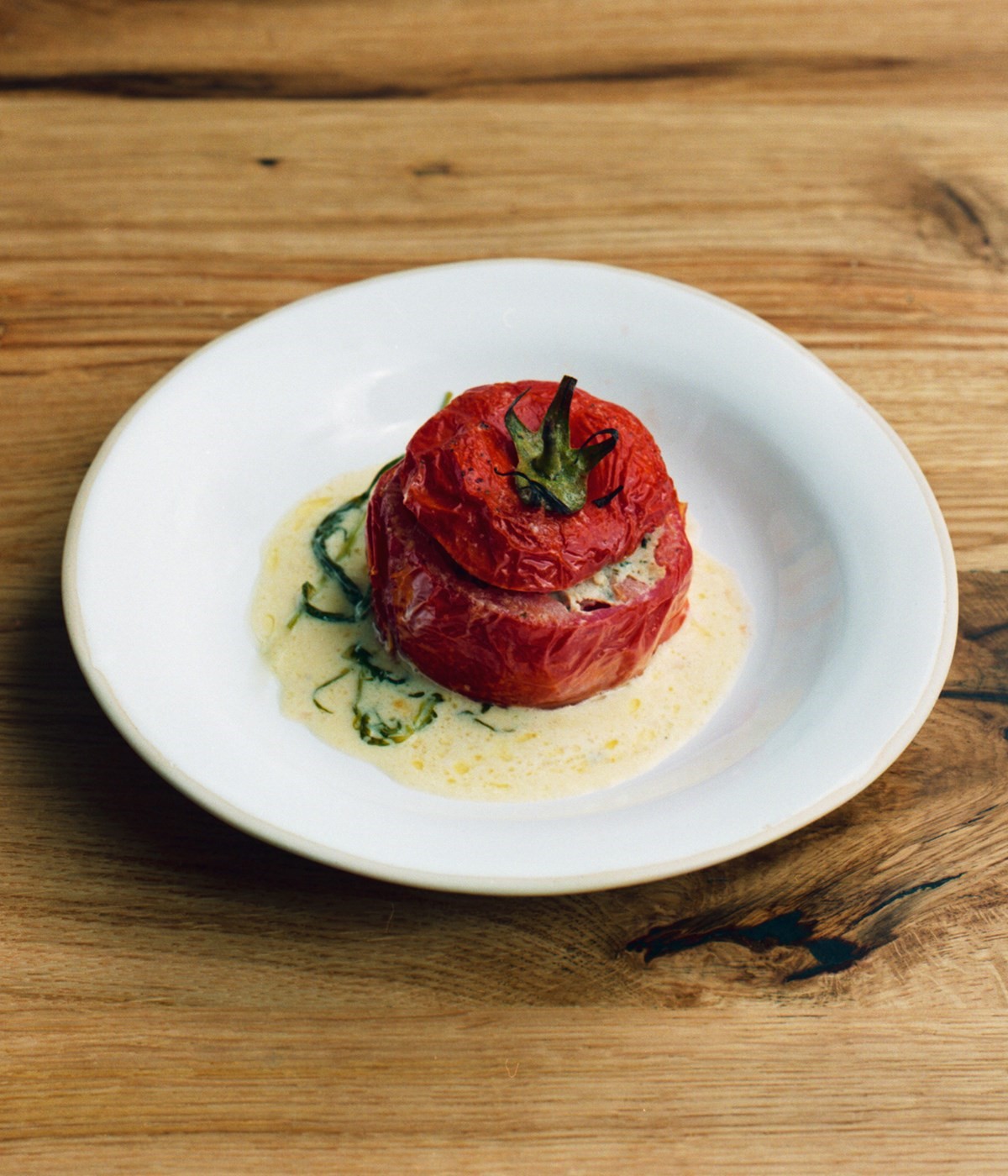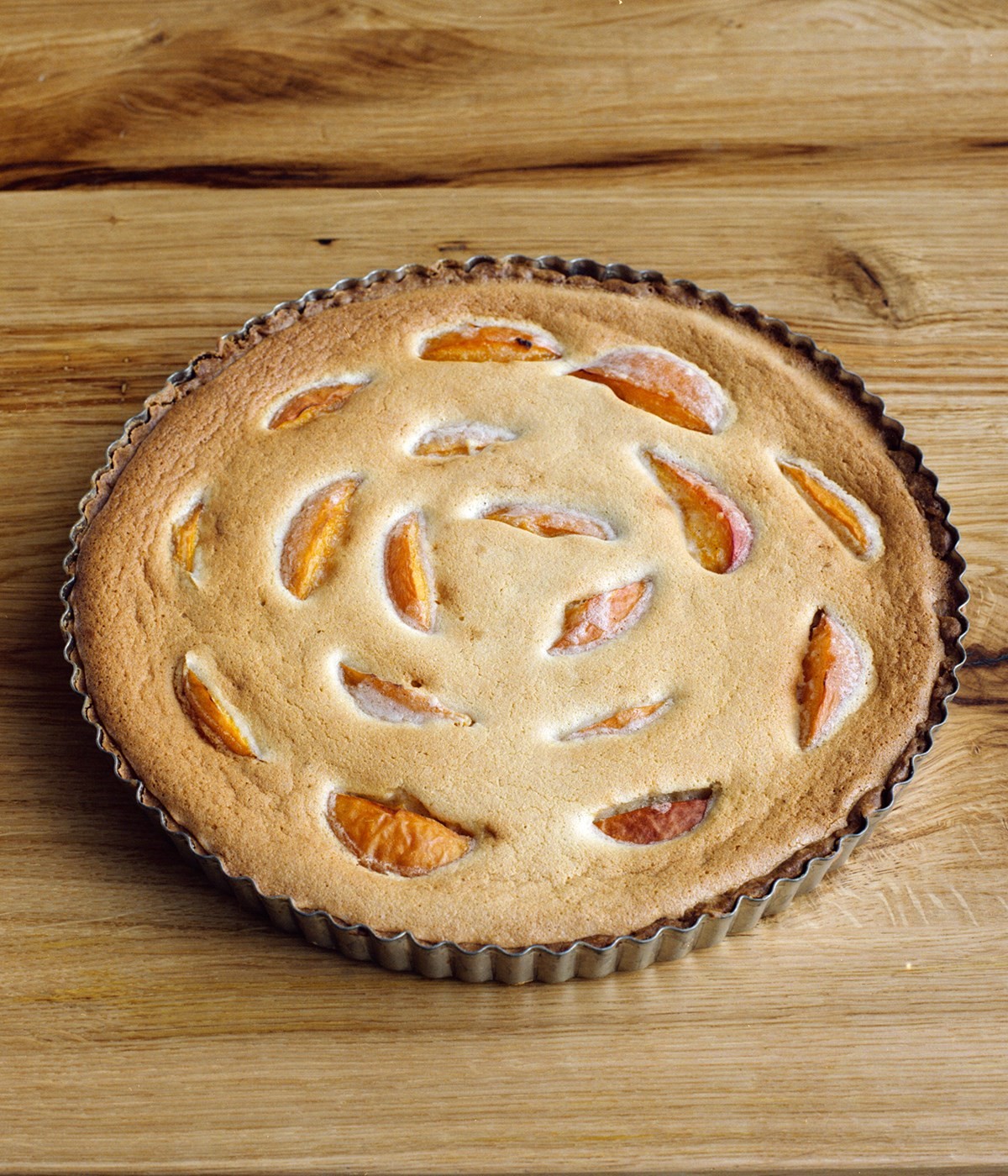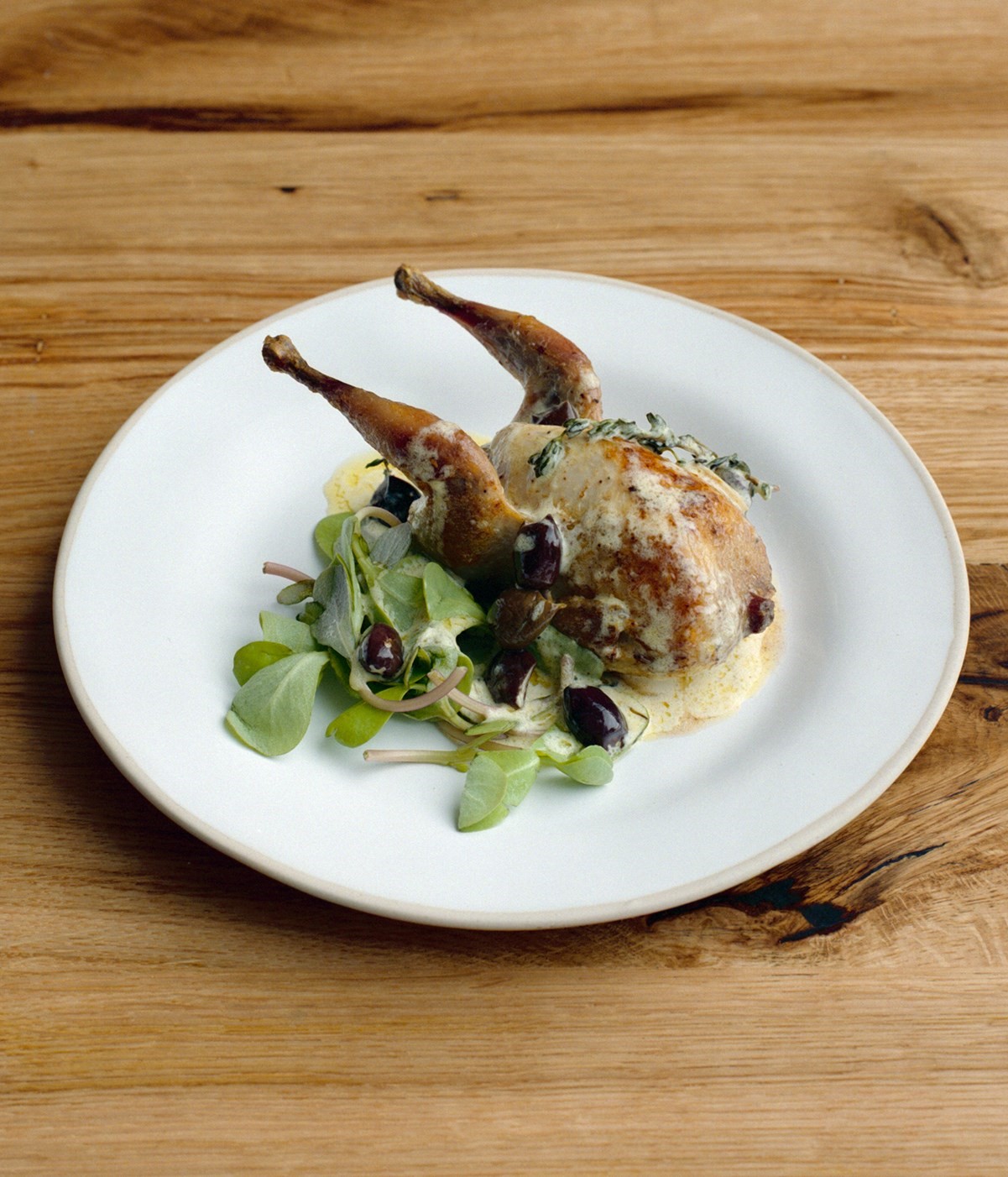“Provence is a country to which I am always returning, next week, next year, any day now, as soon as I can get on to a train. Here in London it is an effort of will to believe in the existence of such a place at all. But now and again the vision of golden tiles on a round Southern roof, or of some warm, stony, herb-scented hillside will rise out of my kitchen pots with the smell of a piece of orange peel scenting a beef stew. The picture flickers into focus again.”
Elizabeth David, French Provincial Cooking, 1960
What is home cooking, and who does it? Undoubtedly, the image that first comes to mind is that of a woman, bound to the domestic space of the kitchen by the gendered division of labour, providing food for children, a man — anyone who sits at the table. An understanding of the complex operation of satisfying appetites and constructing meals within the economic, cultural and temporal constraints that define most lives, is passed on from woman to woman like an invisible cloak worn all the time, at least in our imaginations. But also, where is home cooking? The domestic space is not a constant, and the contents of cupboards and fridges vary widely throughout different regions in the world. While there has been some homogenisation of grocery shopping in the wake of globalisation, visiting a supermarket or open-air food market abroad is testament to how othering grocery shopping can feel. One home cook’s everyday ingredient is another’s luxury.
While a glut of seasonal vegetables or fruit could feel decidedly mundane to a cook who lives in the region where they are grown, they are an imported luxury to others. Which brings us onto Alex Jackson’s new restaurant Sardine, located next to the Victora Miro gallery in London, which serves, as he puts it, ‘Provençal Granny Cooking’. Sardine’s menu reads like a “best of” home cooking from Provence: soupe au pistou, quail with olive sauce, tomato stuffed with veal and tarragon, ratatouille, lamb cooked on a string over wood with haricot beans. It is old-fashioned food, and provincial – Provençal – with roots in the routines and landscape of domestic life in the south of France, closely linked to what is produced there, and the region’s cross-pollination with Corsican and Italian food cultures.
But Jackson is not French (he grew up in Birmingham), and his grandmother was a hotel chef in a Wales (she made a brilliant egg and chips), rather than Aix-en-Provence. However, holidays spent cooking over fire in southern France as a child, ogling Parisian markets as a student, the advice of his mentor Stevie Parle, who trained under Rose Gray and Ruth Rogers at The River Café, and perhaps most importantly, the writers, mostly women, who took the culinary wisdom of European home cooks seriously, have acted as his guides.

When researching for his new restaurant, on a break from cheffing to gather his thoughts and sell French cheese for Mons, Jackson often spent evenings surrounded by books. “This menu that I’ve written is a result of me reading these books for the past nine months,” Jackson recounted. “My wife would come home and she’d be like “what are you doing?!”, and I’d be sitting there with all of my southern French books out and all of my Sardinian and Corsican book out, 15 recipes that I’m looking at.” He reeled off the names Elizabeth David, M.F.K Fisher, Patience Gray, Caroline Conran, Elisabeth Luard, Rolli Lucarotti, Rose Gray and Ruth Rogers, and Alice Waters, all of whom have played roles in shaping Sardine’s menu and the direction he is taking his food.
Elizabeth David inspired Jackson’s soup au pistou, a murky, green broth with soft, slowly cooked courgettes, sweet alliums and haricot beans, tiny pieces of pasta and a trail of bright green basil pistou across the top. It is breathtakingly good. “I’ve read about it in a lot of books like French Provincial Cooking, there’s sort of a mythical thing about it. I like the fact that it’s so simple the way that David writes about it, quite matter of fact, but there’s also a sophistication, it’s elegant.” Jackson described the soup’s mixed heritage, reflective of Provence’s Italian connection. “Soup au pistou is basically minestrone with pesto, which is Ligurian through and through, and soup au pistou is provincial through and through, the only difference really – and some people will kill me for saying this – is that soup au pistou has no pine nuts in the pesto, sometimes they put tomato instead. I make a sofrito, add the vegetables, slowly cook them until they go soft, add some beans, greens, then some water and finish with pasta and olive oil. That is the approach of it, very Italian but they do it in the south of France too, a little differently. You stir in a little bit of pesto, I mean, pistou, into the soup before plating it.”
“The ladies shopping at the market in Aix-en-Provence don’t mess around saying ‘ohh, amazing onions’ like I do – they just say ‘that one, that one’. They’ve got shit to do, but they know what looks good.” Alex Jackson
He considers the recipe as intrinsically connected to its domestic origin: “There’s an implicit involvement with women in this dish – historically most home cooking was by women – it’s that old division of labour: a woman is really busy, doing everything, she makes a delicious soup, she does it a lot, and so she’s good at it. There’s no arrogance, no pretence there. She’s just making something to eat – and I think it tastes amazing. Watching the ladies shopping at the market in Aix-en-Provence, they don’t mess around saying ‘ohh, amazing onions’, like I do – they just say ‘that one, that one’. They’ve got shit to do, but they know what looks good,” he continued.

Next, is the quail dish, a small, juicy, delicate bird prepared with a startlingly minimalist sauce, a few olives, anchovies and a little lamb’s lettuce form a garnish. It is the best-cooked quail I’ve ever had and is taken from a dish that Rose Gray and Ruth Rogers cooked at the River Café, that never featured in one of their books, passed to him by his mentor, Stevie Parle. “Quail is River Café, it was never in a cookbook, and I read something really similar in a Chez Panisse book by Alice Waters. The way I’ve cooked a lot has been shaped by Steve, and the way that he has cooked has been shaped by the River Café, I never got to cook with them – he [Stevie] talks about the way they cooked a lot, and I remember when I was young, reading the River Café cookbooks and thinking I should think about being a chef.”
Vegetables stuffed with mince baked in the oven might not seem a reason to eat out for some, but the tomato with veal and tarragon that followed was my favourite dish. It was exquisitely seasoned, and the flavours of iron rich of chicken liver, subtle sweet veal and aniseed from the tarragon were a complex one pot pleasure, cut through by the sharper tomato that contained them. The cream sauce, flecked with even more tarragon, was silky and rich – and well, out this world. “It’s an amalgam, it’s something I’ve been reading recently, a French book of hand-drawn recipes,” said Jackson. “You put the mixture in a tomato, then you roast it with wine and then add in cream – a very simple recipe,” he said.
"Lots of my dishes are simple, you just have to be really careful, to make it good.” Alex Jackson
“Yeah, lots of my dishes are simple, you just have to be really careful, to make it good.” Jackson seemed anxious that people might think they could just “make it at home”: “you have to be careful what you put on the menu,” he said. I doubt this will be a problem. Few people would have the time or space to cook meat over wood for hours, or to simultaneously and skillfully produce an array of dishes using hyper-seasonal ingredients from specialist supplies, even if they are prepared without water baths, syringes and liquid nitrogen. This isn’t home cooking, it’s derived from it: picking and choosing from a dozen dishes made from ingredients that aren’t stocked in Tesco, with a wine list chosen by a sommelier, is luxurious.
What’s more, though, is that Jackson should have the confidence of his assertions that methods developed at “home” can have delicious results: his certainly do. Snobbery about home cooking is inevitably bound up with the protection of the ‘professional’ kitchen as a male domain, as it very much still is in the UK and beyond. “My instinct is to always do it as a home cook would do it,” Jackson confessed. “If you roast a tray of good tomatoes, it’s delicious! I wouldn’t even know how to go about doing a tomato three ways, that’s not my training, and I have no interest in it.” After eating Jackson’s cooking, I’m not sure I have too much interest in it either.

Alex Jackson’s Reading List:
Honey from a Weed by Patience Gray: Best book ever.
Lulu’s Provencal Table by Richard Olney: I know he’s a man, but it’s all about Lulu! I met her on a recent trip to Provence, she is 98 and really cool.
Sud de France by Caroline Conran.
French Provincial Food by Elizabeth David.
Everything by MFK Fischer: So sophisticated.
La Cuisinière Provençale by Jean Baptiste-Reboul: It’s not by a man but it's about a female provencal cook! Is also awesome, only available in French as far as I can see.
A Corsican Cookbook by Rolli Luccarotti: Amazing.
Elizabeth Luardi is great, particularly European Peasant Cookery and European Festival Food. Also, she looks a bit like my Welsh Grandma.
Anything by River Café chefs or Chez Panisse.
